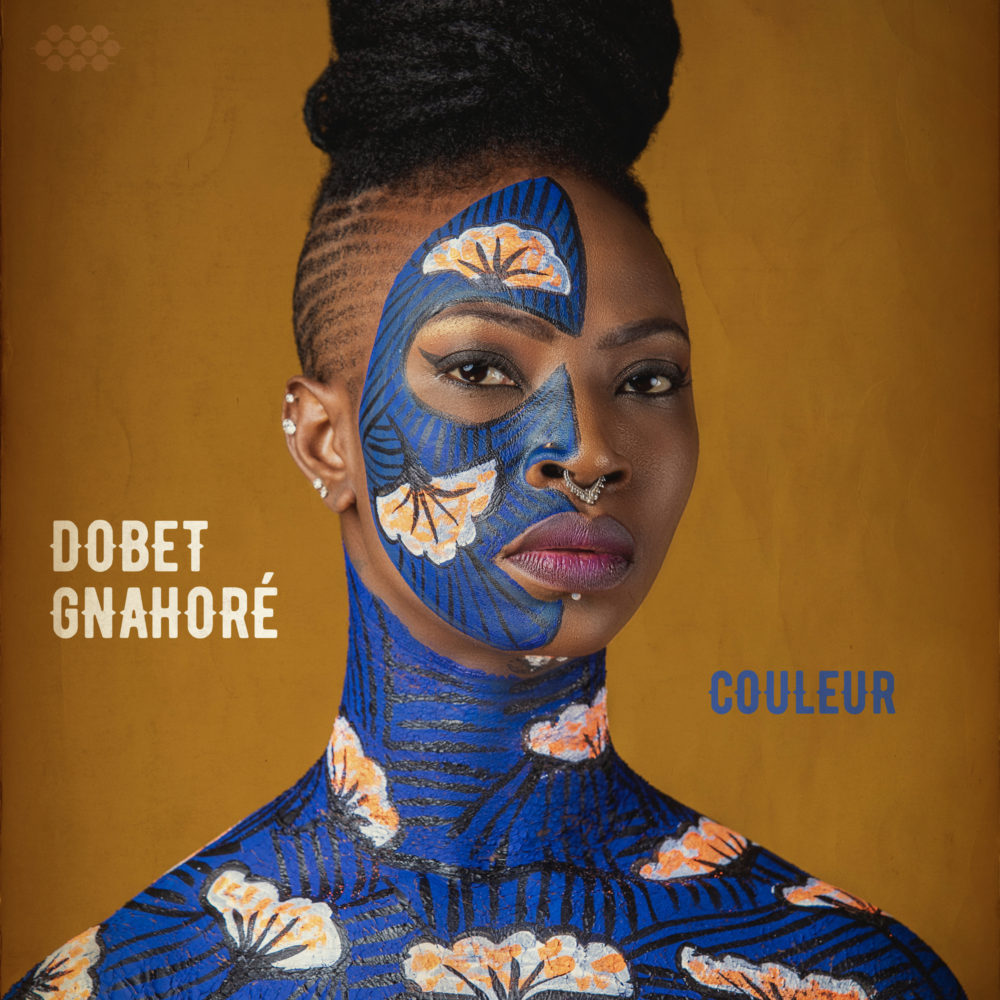
Looking at the cover of Couleur (Color), Dobet Gnahoré’s sixth album, a newcomer to her work would be hard pressed to believe she has a 20-plus year career to date. Always very stylish, Dobet appears here in spectacular face, neck and body paint, facial jewelry and a defiant, regal stare looking straight at the camera. It almost dares you to listen to what’s inside: just what you would expect from the fearless debut of a fresh talent. In short, Couleur indeed has all the fearlessness and energy of a first album but in fact marks the rejuvenated spirit of a returning warrior.
After a several-year hiatus in her career, this multitalented Ivory Coast diva returned from Paris to Africa to ride out the Covid pandemic, and that was when this album was conceived and recorded, using a variety of young and sometimes unrecognized producers and musicians. It is a credit to that aforesaid talent that the album is cohesive, strong and exactly right for Dobet’s songs. Indeed, the material is firstclass throughout, and she owns it with force and conviction. Nearly all the songs are upbeat, if not dance orientated, but there is a message contained in all of them.
The first single—and I have a feeling there will be many more, such is the quality on hand—was “Leve-Toi” expressing encouragement and positivity thus:

If you think others are better than you, raise yourself up.
Even though it may be hard, nothing comes without effort.
I jotted down several others that could be contenders such as “Yakane," with its almost South African groove topped by soukous-like guitar lines, “Woman,with a four-on-the-floor beat addressing the power and beauty of young women and their role in the future, and “Ma Maison," with a Congolese style reminiscent of Souzy Kasseya. Most telling perhaps is “Mon Epoque,” where she lays down her ground rules for living:
I am a woman of today.
Free to admire a man I like and tell him.
I am in my era, free to express my sexuality.
Make no mistake, this is an album for these times, coming out of modern Africa, and the production reflects this. Cleverly, it retains accessibility for old school ears more attuned to Angelique Kidjo or even Salif Keita, but has enough punch to keep young clubbers happy. There will no doubt be remixes of some of these tunes to extend that purpose. It is no mean feat to bridge that gap, and Couleur is also served well by top-flight musicianship throughout. Those very pan-African references should also make this appealing across the continent. Dobet Gnahoré is back for sure. It is like she never went away.








